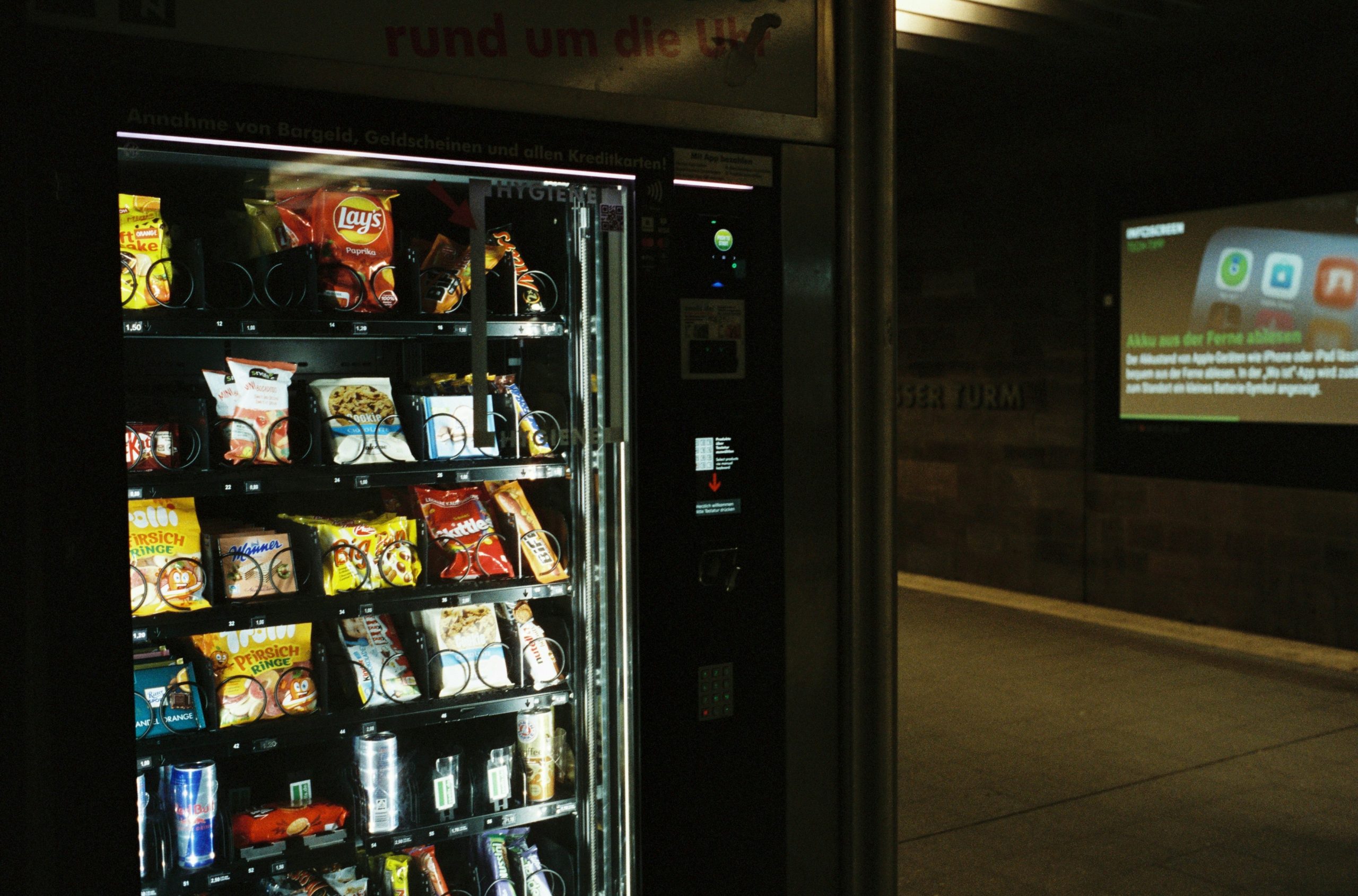
Vending machines have come a long way from just dispensing snacks and sodas. Enter 2025, and vending machine franchises are booming—with options offering everything from fresh salads to high-tech gadgets. Picture this: running a small business with flexibility, minimal management, and a lower upfront investment, thanks to vending machines.
But is a vending machine franchise right for you? Just like any business venture, it comes with both upsides and challenges. This blog will walk you through the pros and cons of owning a vending machine franchise in 2025, helping you figure out if this is the investment for you.
What Is a Vending Machine Franchise?
A vending machine franchise allows individuals to operate vending machines under a parent company’s brand. Instead of going the traditional route and buying vending machines independently, you purchase the rights to use the branding, products, and operational systems of an established company.
These franchises often provide startup support, including selecting machine locations, stocking guidance, and ongoing training. Franchise fees typically cover the cost of equipment, as well as access to brand credibility and customer trust.
The 2025 Landscape for Vending Machines
Vending machines have evolved with technology and customer demands. High-tech machines now offer everything from healthier snack options to touchless payment systems. Companies like Farmer’s Fridge offer fresh meals, while tech-centric options sell items like power banks and wireless headphones.
With global demand rising for convenient, on-the-go consumption, the vending machine franchise market seems poised for continued growth. But this opportunity also has its complexities, which we’ll explore.
The Pros of Owning a Vending Machine Franchise
1. Low Startup Costs Compared to Other Businesses
Starting a vending machine franchise is significantly more affordable than opening a traditional brick-and-mortar business. The initial costs typically include purchasing the machines, franchise fees, and stocking products. These costs pale in comparison to opening a restaurant or retail outlet with high overhead for rent, utilities, and payroll.
Additionally, many vending machine franchises offer financing options, making entry accessible even for budding entrepreneurs.
2. Minimal Day-to-Day Management
One of the most appealing aspects is the passive nature of this business. After placing machines at high-traffic locations (think office buildings, schools, or gyms), your primary tasks are restocking and maintenance.
Thanks to inventory tracking apps and modern monitoring systems, owners can check stock levels remotely. Unlike restaurants or retail, there’s no need to deal with demanding customers or manage a large team of employees.
3. Franchise Support and Brand Recognition
By choosing a vending machine franchise instead of going solo, you benefit from established branding and operational systems. Known brands often have better success acquiring prime locations since the brand’s trustworthiness appeals to property owners or retailers.
Franchise owners also get training and access to resources such as marketing material, streamlined supply sourcing, and technical maintenance programs.
4. Flexible Business Model
A vending machine business allows for immense flexibility. Unlike businesses with set hours, vending machines serve customers 24/7.
It’s also scalable. Entrepreneurs can start with one or two machines and expand their reach over time. This scalability makes it a popular side hustle for individuals with full-time jobs or limited availability.
5. Appeals to Current Consumer Trends
Convenience is king. Modern consumers value easy, on-the-go solutions, especially in urban areas. At the same time, demand for healthier options and touchless payments continues to grow. Many vending franchises specialize in responding to these trends, whether by offering fresh food, eco-friendly packaging, or smart machines with app integrations.
The Cons of Owning a Vending Machine Franchise
1. Finding and Securing Locations Can Be Difficult
The success of a vending machine hinges largely on its location. High-foot-traffic areas generate consistent sales, but securing those spots can be competitive. Franchisors might offer suggestions, but final location negotiations are often the responsibility of the business owner.
Prime locations, such as airports or malls, may also come with higher rent-sharing fees. Without the right placement, even the best machines may underperform.
2. High Competition
Vending machine franchises face growing competition. Retailers may already have contracts with other vendors, and locally owned machines could undercut your prices.
Additionally, as the vending industry grows, niche markets such as fresh food or tech accessories attract more operators. Competing in oversaturated locations takes strategic planning and agility.
3. Ongoing Maintenance Costs
While vending machines are relatively low-maintenance, they are not maintenance-free. Machines can break down, face vandalism, or simply require regular checks. This means owners must budget for repair costs, part replacements, and the time spent handling inventory.
Even minor malfunctions can disrupt sales, making speedy repairs crucial to avoid lost revenue.
4. Initial Investment May Still Be High
Although cheaper than starting many traditional businesses, vending machine franchises still require upfront investment. Between franchise fees, machine purchases, and stocking costs, new owners can expect expenses ranging from $10,000 to over $100,000.
For a business generating predictable (but often moderate) revenue, recouping your costs may take time. Potential owners should evaluate ROI carefully before committing.
5. Franchise Limitations
Franchise agreements typically come with restrictions on what products you can sell or how operations are handled. For entrepreneurs seeking full creative or operational control, this may feel limiting. Breaking brand rules can void agreements, which could jeopardize your investment.
Additionally, some franchises require royalty fees or set product price points, cutting into your profit margins.
Is a Vending Machine Franchise Right for You?
The decision depends on your goals, available capital, and risk tolerance. A vending machine franchise offers flexibility, affordability, and passive income potential, making it an attractive option for entrepreneurs looking for a low-maintenance business model.
That said, franchises aren’t a “set it and forget it” solution. Success requires finding prime locations, responding to market trends, and handling the inevitable maintenance. Research thoroughly and assess whether this industry aligns with your skills and financial goals.
Actionable Tips Before You Commit:
- Research Franchises – Not all vending franchises are equal. Look for one with strong support systems and a proven track record in your target market.
- Scout Locations Early – Before signing contracts, identify potential high-traffic areas for your machines.
- Understand Your Costs – Account for all upfront and recurring expenses, including licensing, rent-sharing, and maintenance.
- Learn Local Laws – Ensure compliance with local vending regulations and health codes.
By approaching the business thoughtfully, you can increase your chances of building a successful vending franchise in 2025.
Related Blog



